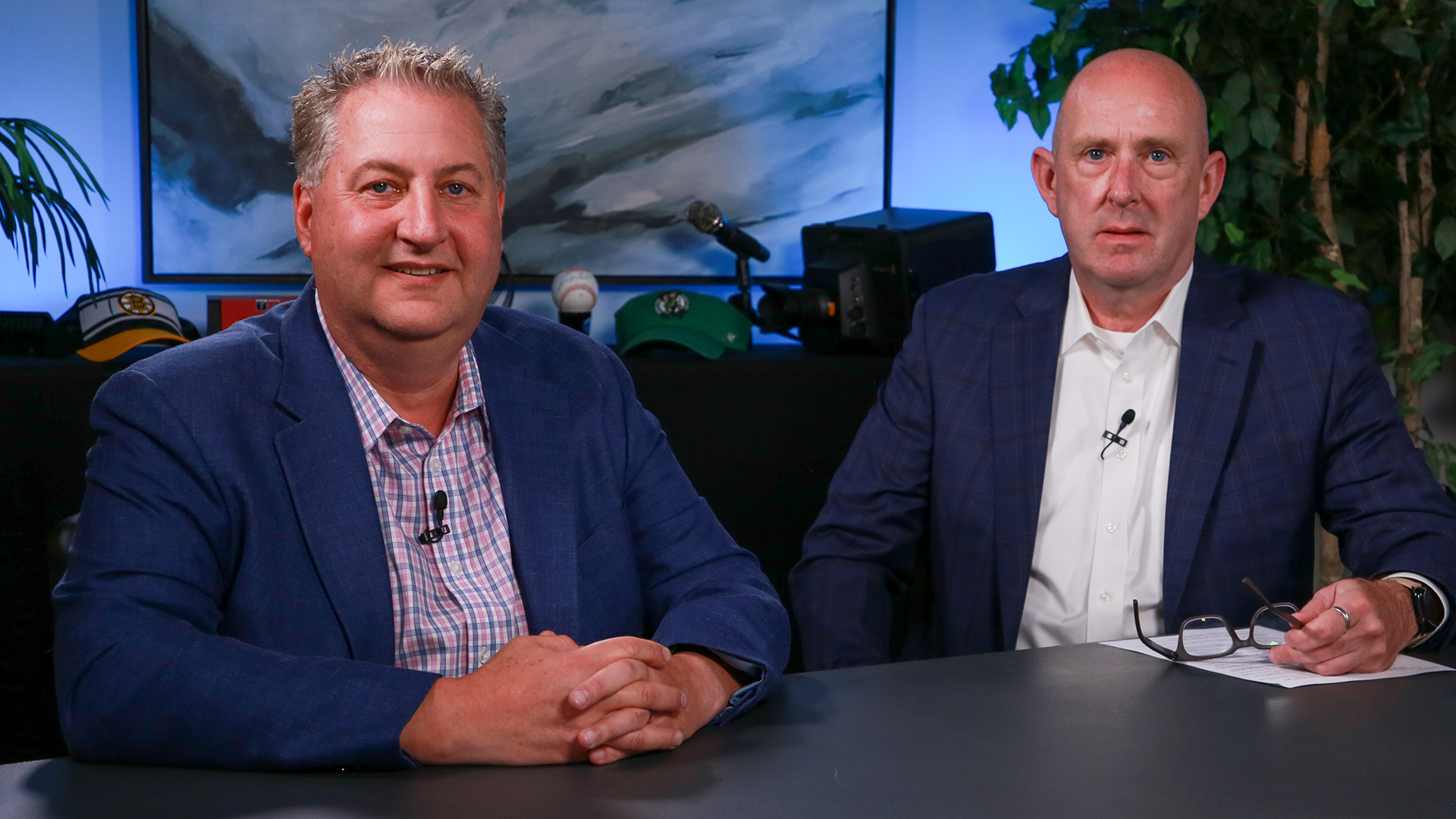 SECURITY
SECURITY
 SECURITY
SECURITY
 SECURITY
SECURITY
As organizations confront a surge of cyber threats daily, cybersecurity partnerships have become crucial. The demand for strong, proactive data protection measures is more pressing than ever.
Artificial intelligence integration into cybersecurity is driving groundbreaking advancements in threat detection and response, outpacing traditional methods. Collaborations between leading tech firms are spearheading innovations in data protection and recovery, bolstering business resilience against increasingly sophisticated cyberattacks, according to Steve Kenniston (pictured, left), senior cybersecurity lead of portfolio marketing at Dell Technologies Inc.
“I talk to probably 10 customers a week ongoing, and every single one of them has security on the brain. It’s the most important thing that they think about as they’re looking at putting in or introducing new technologies,” Kenniston said. “It’s not just for new projects; it’s for how are we advancing our security maturity for the existing things that they have, because they want to make sure that everything in their environment is secure, they want to have good security hygiene across their entire organization.”
Kenniston was joined by Jim McGann (right), vice president of strategic partnerships at Index Engines Inc., as they spoke with theCUBE Research Chief Analyst Dave Vellante in the second of a four-part series on enterprise security broadcast on theCUBE, SiliconANGLE Media’s livestreaming studio. They discussed how cybersecurity partnerships, particularly between Dell Technologies and Index Engines, are leveraging AI to enhance data protection and recovery, ensuring business resilience against sophisticated cyber threats. (* Disclosure below.)
The collaboration between Index Engines and Dell Technologies exemplifies how strategic partnerships can enhance cybersecurity and data integrity. Index Engines, known for its expertise in data indexing and integrity, has been working with Dell since 2018. This collaboration focuses on integrating Index Engines’ advanced cyber product with Dell’s cyber recovery solutions, providing comprehensive data protection and recovery capabilities, according to McGann.
“It was really Dell recognizing that the need for a data integrity scan of customer data to say, ‘Hey, we have it isolated, we have it immutable, but we need the intelligence to make sure that you can recover with clean data when you get attacked,’” he said. “After the attack is not when you want to figure out where the clean data is; you want to do that on a daily basis proactively so you can recover quickly.”
Dell’s Cyber Recovery Vault, combined with CyberSense, offers an isolated environment where data can be stored securely and protected from bad actors. As AI continues to transform the cybersecurity landscape, cyber threats become more sophisticated. However, AI offers the ability to detect and respond to these threats more effectively than traditional methods, according to McGann.
“If you study what these bad actors are doing, they’re in the data center, they leave footprints, they leave a lot of indicators of what they’re doing, a lot of patterns of behavior that are unusual from your typical user behavior and it’s separating those out,” he said. “We’ve had great success with the data protection team at Dell, with the Cyber Recovery Vault … I think Dell having a CyberSense product across the portfolio just extends customer cyber resiliency and helps them.”
The integration of AI into cybersecurity solutions is not just about detecting threats; it also involves reducing the attack surface and enhancing recovery capabilities. Dell’s approach to cybersecurity maturity involves three practice areas: reducing the attack surface, detecting and responding to threats and ensuring recovery. By incorporating AI into all aspects of their cybersecurity solutions, Dell and Index Engines are helping organizations stay ahead of evolving threats, Kenniston pointed out.
“I think what’s really important to Dell, and what I think CyberSense brings to the table is we don’t just look at backup as taking a block of data and putting it in a box and locking it away. Our premise around cybersecurity, and advancing that cybersecurity maturity, revolves around our three practice areas, reducing the attack surface, detecting and responding, and then recovery,” Kenniston said.
Trust is a cornerstone of any successful cybersecurity strategy. Organizations must have confidence in the solutions they deploy to protect their data. Cybersecurity partnerships, such as that between Dell and Index Engines, have demonstrated a commitment to building trust through reliable and effective cybersecurity solutions, Kenniston added.
“I see so many vendors out there saying, ‘We’re a trusted vendor, we have trusted products.’ The vendor themselves don’t get permission to say that. It’s the customer that says, ‘I trust you,’” he said. “What we try to do is work with vendors, like an Index Engines, that help us bring the data, the application, whatever it is that we’re doing, to make it reliable enough that it gives you that confidence so that customer can then in turn say, ‘I trust what I’m doing.’”
Here’s theCUBE’s complete video interview with Steve Kenniston and Jim McGann:
(* Disclosure: Dell Technologies Inc. sponsored this segment of theCUBE. Neither Dell nor other sponsors have editorial control over content on theCUBE or SiliconANGLE.)
Support our open free content by sharing and engaging with our content and community.
Where Technology Leaders Connect, Share Intelligence & Create Opportunities
SiliconANGLE Media is a recognized leader in digital media innovation serving innovative audiences and brands, bringing together cutting-edge technology, influential content, strategic insights and real-time audience engagement. As the parent company of SiliconANGLE, theCUBE Network, theCUBE Research, CUBE365, theCUBE AI and theCUBE SuperStudios — such as those established in Silicon Valley and the New York Stock Exchange (NYSE) — SiliconANGLE Media operates at the intersection of media, technology, and AI. .
Founded by tech visionaries John Furrier and Dave Vellante, SiliconANGLE Media has built a powerful ecosystem of industry-leading digital media brands, with a reach of 15+ million elite tech professionals. The company’s new, proprietary theCUBE AI Video cloud is breaking ground in audience interaction, leveraging theCUBEai.com neural network to help technology companies make data-driven decisions and stay at the forefront of industry conversations.